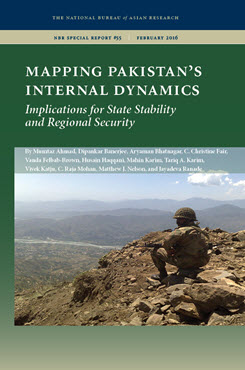India-Pakistan Relations and Regional Stability
This essay reviews the current state of India-Pakistan relations and examines the prospects for bilateral and regional cooperation between the two South Asian neighbors.
EXECUTIVE SUMMARY
MAIN ARGUMENT
India and Pakistan have considerable scope to build on the various confidence-building measures that have been negotiated in the past decade and a half, especially in the areas of trade and economic cooperation. Greater economic engagement has the potential to generate interdependence that could help promote the normalization of relations. However, policymakers in both countries face familiar obstacles to a normal relationship—cross-border terrorism originating from Pakistan, differences over Kashmir, and entrenched domestic opposition to broadening engagement on both sides of the border. The inability of policymakers to separate progress in one field from differences in other areas has rendered it difficult to expand and sustain cooperation. More immediately, India-Pakistan relations are further complicated by the turbulent regional dynamic centered on Afghanistan. The drawdown of foreign troops after over a decade-long international presence in Afghanistan and the challenges of producing internal stability there will make the construction of a shared vision for regional cooperation elusive.
POLICY IMPLICATIONS
This essay offers the following policy recommendations for limiting conflict between India and Pakistan and expanding the scope for cooperation:
- India and Pakistan need to find ways to sustain their resumed dialogue.
- Trade and commercial relations, where quick advances are possible, should be isolated from differences in other fields.
- An early restoration of the ceasefire agreement along the Line of Control and the international border in Kashmir will help arrest the further deterioration of the security environment and create the space for progress elsewhere.
- India should take unilateral steps, wherever possible, to improve relations. It has taken such initiatives in the past—for example, in granting most-favored-nation status to Pakistan in 1996.
- India and Pakistan should begin a dialogue on the future of Afghanistan.
Aryaman Bhatnagar was an Associate Fellow at the Observer Research Foundation in New Delhi.
C. Raja Mohan is Director of the Carnegie India Center in New Delhi


